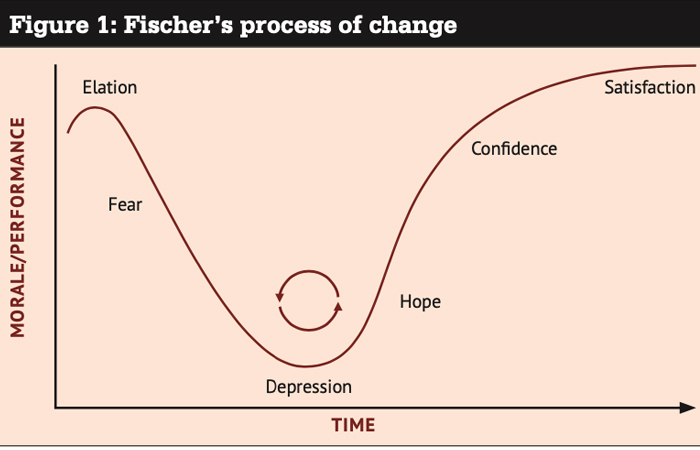When confronted with a period of change, we will have an emotional response to it first. This is down to neuroscience: we are primarily not rational beings.
The information we learn about the world comes into the cognitive areas of the brain through the limbic system, the emotional centre. We might be able to rationalise the nature and need for change, but our reaction is often visceral and emotional, and sometimes irrational.
The process we experience when we go through a period of change (see figure 1) is often called the change curve or Fischer’s process of change. When a change is announced, we can go through an elation phase (this stage was probably missing in March). We are excited at the thought of some change and the possibilities it might bring. We then move into a phase when fear takes over. We realise that this might present challenges and we have to give up the way things are now.
As we become more concerned about the unknown and the scale of what we need to do, this leads to a period of ‘depression’. We lose the belief that we can achieve the results we want and any initial enthusiasm is lost. But then we start to see a chink of light at the end of the tunnel and move into a stage of hope. We start to believe we can achieve the results.
From here, it can go in two directions. Small successes may build until we become confident that we can achieve the results. Alternatively, small problems or difficulties may take us off course and delay our progress. We may spend some time cycling between hope and depression. The longer we spend in this process, the harder we find it to build the belief and motivation required to get us to a result. As we pass through the confidence phase, we need to build up momentum to get to the result.
This needs a conscious last push. All too often, we get to 90 per cent and lose motivation as something new takes our attention: we have almost finished the change required, but not completed everything. You may recognise the stages of this process from having gone through periods of change yourself.

